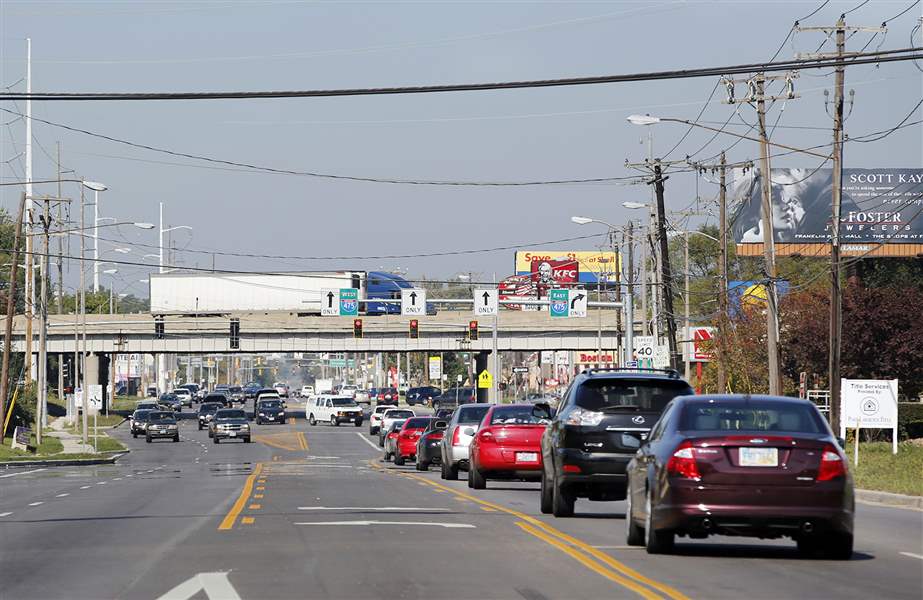
Central-Secor growth a result of proximity to UT
Council told boosts to road safety planned
2/9/2017
Secor Road in the Westgate area has grown, prompting a Toledo City Council zoning briefing on the area.
THE BLADE
Buy This Image
The boom of development on Secor Road in West Toledo, which has contributed to traffic woes, occurred without incentives, Hick-Hudson administration officials told a council committee Wednesday.
“That is the best kind of development,” said Bill Burkett, Toledo’s economic development commissioner.
Mr. Burkett said the development of hotels, restaurants, retail locations, and a grocery store between Central Avenue and I-475 has occurred because the stretch is close to a “multitude of rooftops” and the University of Toledo.
“Proximity to UT is paramount,” he said.
Council’s zoning and planning committee called for the briefing on the development in the area just to be aware of what was happening on the major roadway, said Councilman Tyrone Riley, chairman of the committee.
Doug Stephens, Toledo’s commissioner of engineering services, said safety on the road would be improved with the planned addition of turning lanes and medians. The plans include adding a right-turn lane on northbound Secor approaching Monroe and construction of a median on Secor just north of I-475 to prevent left turns in and out of the parking lot at what is now a Kroger supermarket.
The city also wants to add a median on Central just west of Secor to prevent left turns to and from driveways that contribute to congestion and accidents.
Toledo spent $6.5 million four years ago to rebuild Secor between Central and Monroe, including replacement of a water main beneath the street.
Mr. Burkett said those improvements also encouraged developers to reinvest in the stretch.
Traffic is being monitored on Secor by six devices loaned free-of-charge by Acyclica of Denver that detects Wi-Fi signals from phones, vehicles, or other devices.
Gary Stookey, senior professional engineer for the city, said the devices do not record personal data, but they do record how long it takes each individual signal to travel the street.
Tim Streck, vice president of sales for the company, said the data collected by the sensor is anonymous.
“It is a device that listens for Wi-Fi signals and then it records the signal and compares to where ever it sees the Wi-Fi signal,” Mr. Streck said.
Contact Ignazio Messina at: imessina@theblade.com or 419-724-6171 or on Twitter @IgnazioMessina.